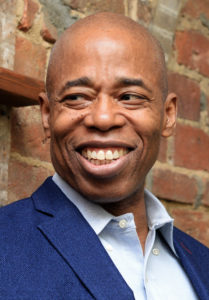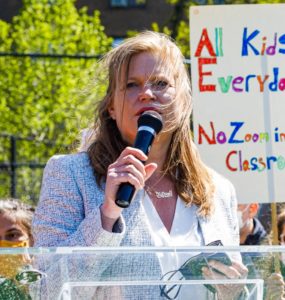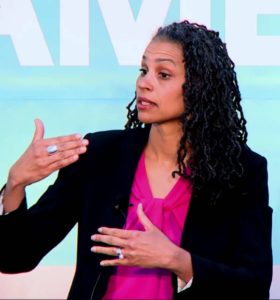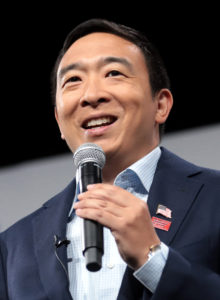While we at BFKP are split between vegan cheese or clams for our favorite pizza topping (if you are confused, see Mayor De Blasio explain ranked-choice voting here), we all agree that the New York City mayoral candidates’ real estate policies are of particular interest to us. On June 22nd, New York City residents will head to the polls for the mayoral primary election. As of June 14th, according to the Marist Institute for Public Opinion, the top four Democratic candidates are Eric Adams with 24% support, Kathryn Garcia with 17% support, Maya Wiley with 15% support, and Andrew Yang with 13% support. While the 4 candidates are less varied than pizza toppings, they have a few critical differences in their approach to important NYC real estate issues. Here is an overview.

Not only does Eric Adams lead the Democratic nominees in polling, but he also leads them in donations received from individuals working in real estate, construction, land development, or property management. Known for his pro-development policies, Adams received $283,000 from donors in the above-mentioned groups, which is twice as much as the next highest (Ray McGuire, who thought the median sales price of a Brooklyn home is “somewhere in the $80,000 to $90,000 range, if not higher”), and five times more than Andrew Yang, who received $51,407. It is unclear whether Adams lives in a co-op in New Jersey, an apartment in Bed-Stuy, or an office in Borough Hall (see here for more details). Though, he has experience in New York as a landlord and co-op board member.
Like most candidates, Adams’s foremost real estate goal is to increase the availability of affordable housing. Also, like most candidates, Adams plans on repurposing vacant hotels and office spaces to help achieve this objective.
Adams has two distinctive plans in the affordable housing space. The first is to sell the air rights of buildings owned by the NYC Housing Authority (NYCHA) to private developers to raise money for repairs. The second is to upzone wealthy neighborhoods for low and middle-income affordable housing. Upzoning refers to the process of increasing the zoning density in a particular neighborhood, usually involving the allowance of multifamily units. The aim is to decrease gentrification in low-income areas and increase the availability of affordable housing. A main area affected by this proposal is between 14th Street and 42nd Street, from 9th Avenue to Park Avenue in Manhattan.
Adams plans to raise environmental standards for all buildings, including co-ops and condos. Adams’ policies in this area are not specifically defined. Still, in an interview with the Presidents Co-op & Condo Council, Adams stated that he would set funds aside to help condos and co-ops meet certain carbon neutrality goals.
Adams has stated that he would not support a further rent freeze without mortgage help for small landlords. However, this is limited to rent-regulated apartment buildings. As for commercial leases, Adams has committed to giving companies that pay the commercial rent tax a break for two years if the companies can show hardships and pledge certain, unspecified employment levels.

Unlike Eric Adams, Kathryn Garcia has never lived in a co-op or condo, and is known as less developer-friendly (hence only $8,000 in donations from the real estate sector). Similar to Wiley, Garcia owns and lives in a house in Park Slope, Brooklyn.
Garcia believes that the city should convert vacant office spaces, commercial storefronts, and hotels into affordable housing units. Garcia also intends to create 50,000 affordable housing units by legalizing basement apartments and accelerating approvals for developers by streamlining, among other things, permit applications and environmental reviews. Garcia agrees with Adams that upzoning is critical to affordable housing and wants to focus on areas with strong transportation networks.
Garcia has been vague (see interview with the Presidents Co-op and Condo Council here) on how the city will help co-ops and condos meet mandates for elevator, fire safety, and building facade upgrades. However, she does offer some unique policies. Garcia is one of only a few candidates (no other candidates polling in the top four) that favors of allowing carbon trading to meet carbon neutrality goals. She also supports increasing property tax rates for condos and co-ops to a rate equivalent to that of one-to-three family homes, or about a 5% increase.
Garcia also wants to Initiate tax credits for long-time residents and for the elderly, and strengthen enforcement on landlords who do not accept Section 8 vouchers or discriminate against tenants based on their income.

Maya Wiley ranks last out of the top four candidates in donations from the real estate sector (below $3,000). These donations mainly come from real estate agents and brokers. (See donations received from the real estate sector by each candidate as of April 20th here). Wiley lives with her family in a multi-million dollar house in Brooklyn.
Wiley, like most candidates, supports converting vacated properties into affordable housing, focusing especially on vacant hotels. Wiley’s solution for affordable housing is her “New Deal New York” plan. This $10 billion plan would increase the capital construction budget (the NYC budget which provides funding for city construction or purchases, ranging from building housing to purchasing garbage trucks) and be used for buying up vacant hotels and converting them to affordable housing, and partnering with not-for-profit housing developers to convert city-owned land into permanent affordable housing. Wiley has also committed to guaranteeing that all New Yorkers making under $54,000 for a family of three pay no more than 30% of their income on rent in NYCHA buildings.
Wiley has not issued formal statements regarding condo/co-op policies.
Wiley plans to address the upcoming eviction crisis through rent subsidies for those still facing hardships from the pandemic. In addition, Wiley plans to invest $251 million into a direct rent relief program for tenants and small landlords. This would be partnered with eviction protections for tenants living in buildings owned by landlords who receive relief from this fund.

Andrew Yang is known as a development-friendly candidate, with just over $50,000 in donations from the real estate sector as of April 20th. Yang is similar to 66% of NYC residents in that he rents an apartment.
Yang has two main policies to increase affordable housing. First, Yang supports rezoning parts of the city to allow for the creation of a new affordable housing stock. Yang is a proponent of expanding the use of community land trusts, which are not-for-profit, community-based organizations used to ensure long-term affordable housing. Yang’s second main policy is to increase the availability of co-living and single-room occupancy spaces.